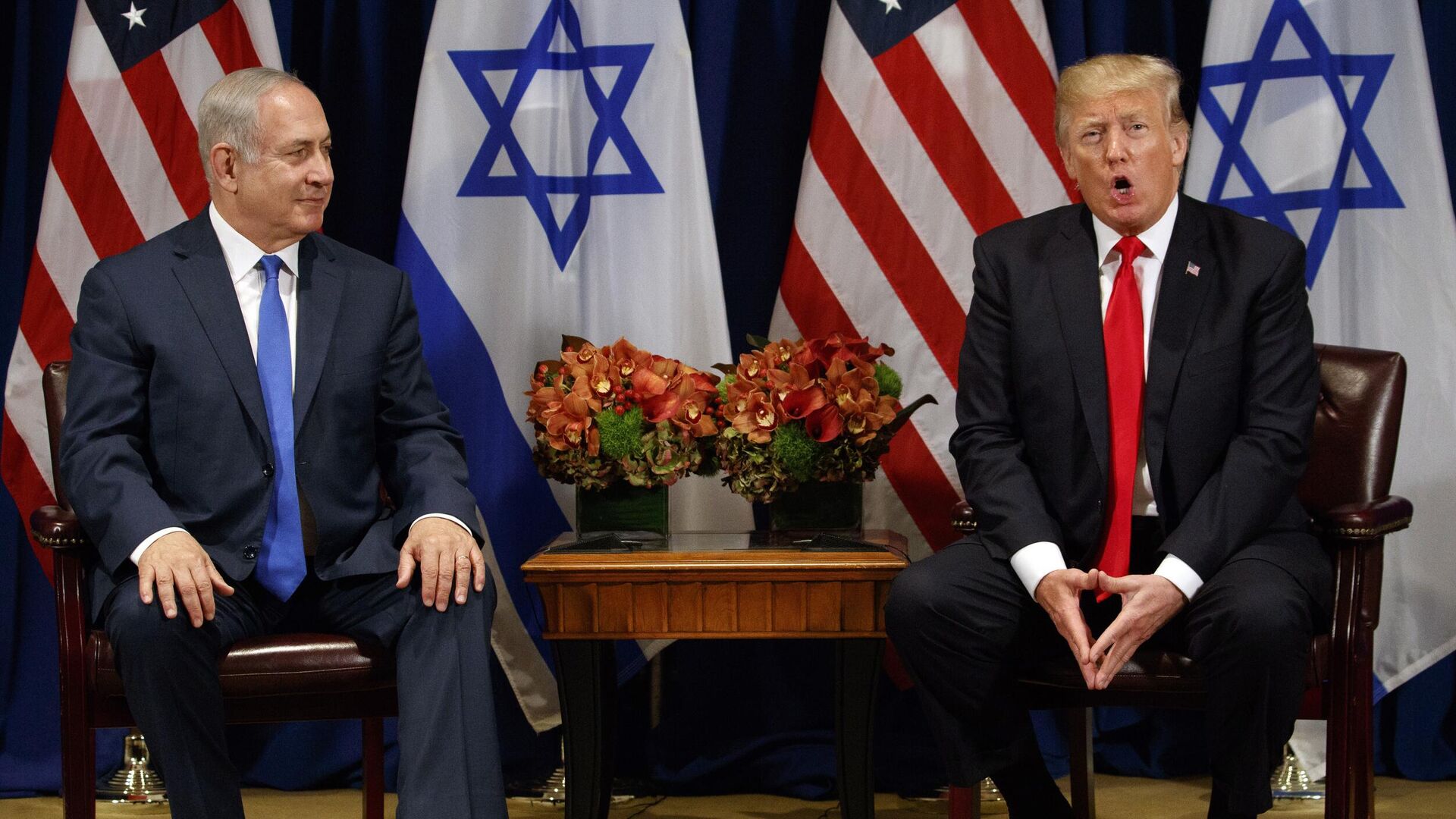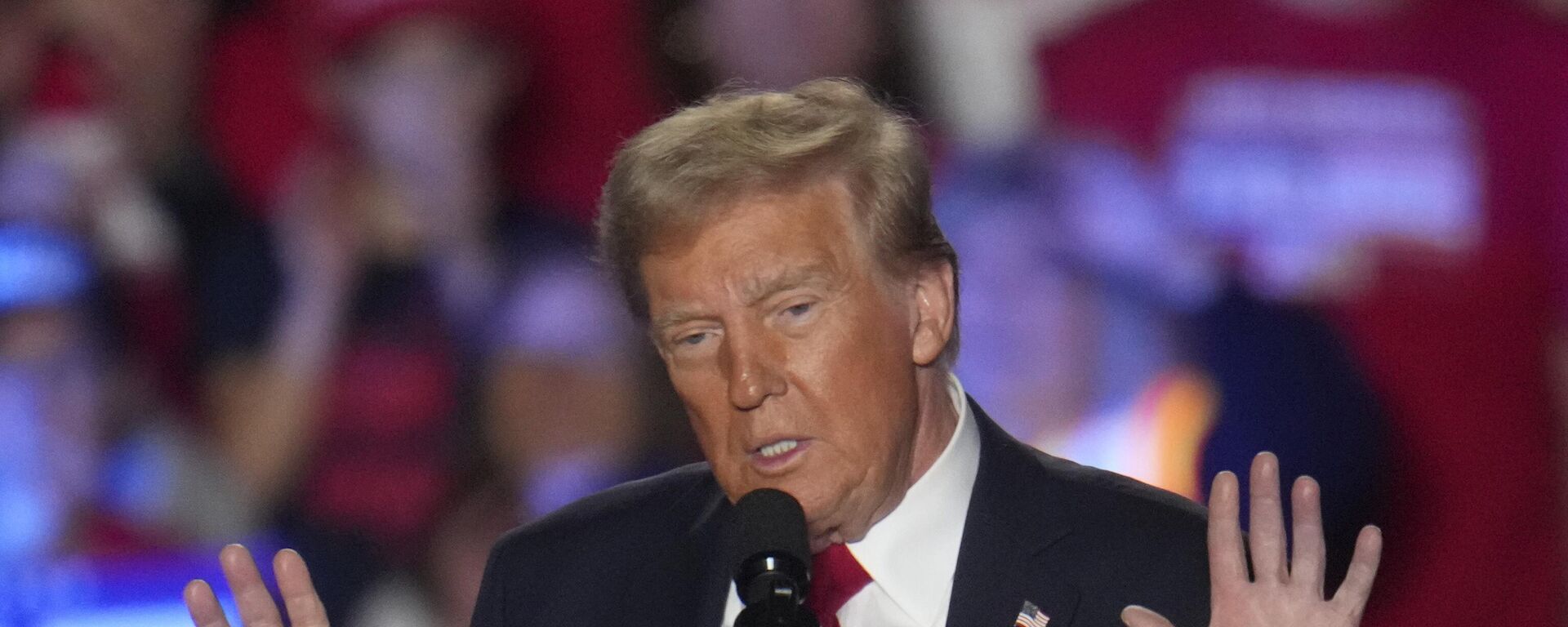https://sputniknews.in/20241113/what-would-trumps-maximum-pressure-policy-on-iran-mean-for-india-8396083.html
What Would Trump's 'Maximum Pressure' Policy on Iran Mean for India?
What Would Trump's 'Maximum Pressure' Policy on Iran Mean for India?
Sputnik India
New Delhi would remain committed to promote the Chabahar Port project as a "gateway" to Afghanistan and Central Asia, experts have told Sputnik India. New Delhi would also continue to reiterate calls for an early ceasefire in Gaza
2024-11-13T18:55+0530
2024-11-13T18:55+0530
2024-11-13T18:55+0530
donald trump
vladimir putin
narendra modi
iran
india
us
shanghai cooperation organisation (sco)
the united nations (un)
brics
israel
https://cdn1.img.sputniknews.in/img/07e8/0b/0d/8398237_0:0:2505:1409_1920x0_80_0_0_07d98a009e39fc3e8d95b4b39fa49a79.jpg
United States President-elect Donald Trump has indicated that he would continue to pursue his policy of applying 'Maximum Pressure' on Iran, if his picks for Secretary of State Marco Rubio and National Security Advisor Mike Waltz provide any clue to the thinking of the incoming American administration.Both Waltz and Rubio are viewed as firm backers of Israeli Prime Minister Benjamin Netanyahu, having voiced support for Israeli plans to strike Iranian nuclear facilities. Moreover, reports in the US media quoting members of Trump's transition team say that he plans to "drastically increase sanctions" on Iran and obstruct its oil sales, which hit a five-year high last year.Recently, the US Department of Justice (DoJ) also announced charges against an Iranian national allegedly tasked to assassinate the President-elect, adding another dimension to Trump-Iran tensions.Iran is much better-placed to counter the US pressure than it was during his first presidency, Qamar Agha, an Indian strategic affairs expert, told Sputnik India.Notable, Russian President Vladimir Putin has also agreed to sign the "comprehensive strategic partnership" with Iran in the near future.Moreover, Iran's accession to non-western groupings such as the BRICS and Shanghai Cooperation Organisation, provided it with strategic leverage to counter Trump's policies, Agha stressed.Trump's support for Israeli plans to strike Iranian nuclear assets could "backfire" for the US and make it further "lose its credibility" in the region, Agha cautioned."As we have seen through recent UN voting patterns, the US is all but isolated in its backing of continued military operations in Israel. Israel has started to be seen as a liability for the US and with the Arab-Tehran normalisation, it is longer seen as serving the American foreign policy interests in the region as effectively as it used to," the expert explained.The signing of the Long-term Main Contract between India Port Global Limited (IPGL) and Ports and Maritime Organisation (PMO) of Iran in May this year further reinforced India’s stakes in Chabahar, he noted.Trump's abrupt pullout from the Joint Comprehensive Plan of Action (JCPOA) in 2018 and re-imposition of sanctions on Iran's shipping industry created risks of "secondary sanctions" for Indian companies, even though the Chabahar project had been exempted from US sanctions.India would also remain committed to an early ceasefire in Gaza, releasing of all hostages and a political settlement towards a two-state solution.He suggested that India is likely to continue adopting a quiet diplomatic approach in pursuing its national interests, a strategy that was evident during the first Trump administration.
https://sputniknews.in/20241105/deep-state-institutionalised-in-us-trump-faces-herculean-task-in-clipping-its-wings-8365615.html
iran
india
us
israel
gaza strip
palestine
china
Sputnik India
feedback.hindi@sputniknews.com
+74956456601
MIA „Rossiya Segodnya“
2024
Dhairya Maheshwari
https://cdn1.img.sputniknews.in/img/07e6/0c/13/138962_0:0:641:640_100x100_80_0_0_2cb44360dbcdf6d84bf4b299cd045917.jpg
Dhairya Maheshwari
https://cdn1.img.sputniknews.in/img/07e6/0c/13/138962_0:0:641:640_100x100_80_0_0_2cb44360dbcdf6d84bf4b299cd045917.jpg
News
en_IN
Sputnik India
feedback.hindi@sputniknews.com
+74956456601
MIA „Rossiya Segodnya“
Sputnik India
feedback.hindi@sputniknews.com
+74956456601
MIA „Rossiya Segodnya“
Dhairya Maheshwari
https://cdn1.img.sputniknews.in/img/07e6/0c/13/138962_0:0:641:640_100x100_80_0_0_2cb44360dbcdf6d84bf4b299cd045917.jpg
trump cabinet, trump news, trump iran, chabahar port, iran news, iran israel news, trump modi call, modi news, brics summit, brics kazan
trump cabinet, trump news, trump iran, chabahar port, iran news, iran israel news, trump modi call, modi news, brics summit, brics kazan
What Would Trump's 'Maximum Pressure' Policy on Iran Mean for India?
India remains committed to promoting the Chabahar Port as a gateway to Afghanistan and Central Asia, while also advocating for a ceasefire in Gaza and de-escalation of Iran-Israel tensions, experts told Sputnik India.
United States President-elect Donald Trump has indicated that he would continue to pursue his policy of applying 'Maximum Pressure' on Iran, if his picks for Secretary of State Marco Rubio and National Security Advisor Mike Waltz provide any clue to the thinking of the incoming American administration.
Both Waltz and Rubio are viewed as firm backers of Israeli Prime Minister Benjamin Netanyahu, having voiced support for Israeli plans to strike Iranian nuclear facilities. Moreover, reports in the US media quoting members of Trump's transition team say that he plans to "drastically increase sanctions" on Iran and obstruct its oil sales, which hit a five-year high last year.
Recently, the US Department of Justice (DoJ) also announced charges against an Iranian national allegedly tasked to assassinate the President-elect, adding another dimension to Trump-Iran tensions.
Iran is much better-placed to counter the US pressure than it was during his first presidency, Qamar Agha, an Indian strategic affairs expert, told Sputnik India.
"In terms of oil trade, we saw that Iran's exports hitting a five-year high last year due to growing economic and strategic ties with China. The China-brokered peace deal between Iran and Saudi Arabia has also served to reduce tensions between Tehran and the Arab World, thus contributing to strategic understanding," Agha said.
Notable, Russian President Vladimir Putin has also agreed to sign the "comprehensive strategic partnership" with Iran in the near future.
Moreover,
Iran's accession to non-western groupings such as the BRICS and Shanghai Cooperation Organisation, provided it with strategic leverage to counter Trump's policies, Agha stressed.
"The prospect of ramping up sanctions on Iran would be almost neutralised due to the growing use of national currencies and a perceptible shift towards multipolarity, wherein Global South countries have a greater say in the global order," the expert suggested.
Trump's support for Israeli plans to strike Iranian nuclear assets could "backfire" for the US and make it further "lose its credibility" in the region, Agha cautioned.
"As we have seen through recent UN voting patterns, the US is all but isolated in its backing of continued military operations in Israel. Israel has started to be seen as a liability for the US and with the Arab-Tehran normalisation, it is longer seen as serving the American foreign policy interests in the region as effectively as it used to," the expert explained.
Discussing the implications of Trump's return on India-Iran relations, emphasised that India remained committed to the Chabahar Port project and its integration into the International North-South Transport Corridor (INSTC).
The
signing of the Long-term Main Contract between India Port Global Limited (IPGL) and Ports and Maritime Organisation (PMO) of Iran in May this year further reinforced India’s stakes in Chabahar, he noted.
Trump's abrupt pullout from the Joint Comprehensive Plan of Action (JCPOA) in 2018 and re-imposition of sanctions on Iran's shipping industry created risks of "secondary sanctions" for Indian companies, even though the Chabahar project had been exempted from US sanctions.
"India is expected to maintain strategic autonomy in its foreign policy choices, including in its relationship with Iran. Prime Minister Modi's foreign policy has been characterised by the mantra of continuity and change, which we expect to be reinforced regardless of external circumstances," Agha underscored.
India would also remain committed to an early ceasefire in Gaza, releasing of all hostages and a political settlement towards a two-state solution.
He suggested that India is likely to continue adopting a quiet diplomatic approach in pursuing its national interests, a strategy that was evident during the first Trump administration.



